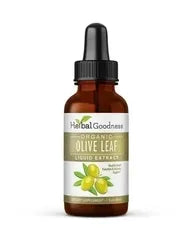The Top 5 Healthiest Oils for Cooking | Herbal Goodness
These days, the topic of the healthiest oils for cooking is a hot one. And with the wealth of options we have available, there is some confusion surrounding the healthiest oils to use.
The matter has not been helped by new entrants who have joined the healthy oils fray.
Coconut oil, for example. Or butter, which is making a comeback after a long absence triggered by claims that the creamy condiment causes diabetes, obesity and is bad for the heart, assertions that have since been refuted.
That aside, a good starting point when it comes to the healthiest oils for cooking debate is that all vegetable oil is cholesterol-free and that it is only animal products that contain cholesterol.
Some vegetable oils contain mono- and poly-unsaturated fats (MUFA and PUFA), what are often considered the “good fats”. Olive and peanut oils are two examples of oils rich in MUFA, while the likes of canola, sunflower, and walnut oil have high amounts of PUFA.
But all oils have the potential to become “bad fats”, and this mostly happens when they reach their smoke point (that temperature when they start to smoke?), at which they turn into a trans-fat.
So then, with this in mind, how do you know if you are using the right oils in your cooking?
Below, we list the top 5 healthiest oils for cooking, and which works best for the different cooking methods.
Extra-virgin Olive Oil
As far as the healthiest oils for cooking go, olive oil is the universal favorite.
Olive oil itself is a great option for cooking because it produces far fewer aldehydes (toxic compounds) and is much more stable when heated. It also contains the highest quantities of monounsaturated fats among all cooking oils.
But extra-virgin olive oil has an edge in that it is less processed than other olive oils, hence the reason it is considered a cold-pressed or unrefined oil. It also contains the most antioxidants (known as polyphenols) and boasts a more flavorful and fruity aroma.
Extra-virgin olive oil (EVOO) is a great option for cooking, but when it comes to high-temperature cooking such as deep-frying, it cannot withstand very high heat for long without burning and smoking. And that is where pure olive oil (the refined type) beats it.
EVOO is best used for sautéing, stir-frying or drizzling.
You might as well treat this as two points in one because refined olive oil also happens to be one of the healthiest oils for cooking. Best reserved for high-temperature frying.
Sunflower Oil
Sunflower oil is a blend of both MUFA and PUFA, and in fact, has one of the highest concentrations of PUFA among cooking oils (69%). Its MUFA content makes up for 20%, while the remaining 11% is saturated fat.
You may come across versions of sunflower oil labeled “high-oleic”. What this means is that it has been modified to boost the level of monounsaturated fat.
Sunflower oil is packed with high vitamin E quantities and this is one of the reasons it is a favorite among cosmetic product manufacturers.
As far as cooking is concerned, sunflower oil has a high smoking point which means it can still hold onto its high nutritional value under higher temperatures. This is why you often find it used in deep-frying samosas, fries, and vegetables.
However, diabetics might want to steer clear of sunflower oil as it has the possibility of spiking sugar levels.
Canola Oil
Recently, canola oil has been flying off the shelves as people come to the realization that it is one of the healthiest oils for cooking. This is contrary to the bad rep it had gained over the years, perhaps due to its association with fried food.
But the truth is out, and canola oil is as healthy a cooking oil as you could do. Not only is it high in Omega 3 and monounsaturated fats, but it has the lowest saturated fat content of any oil.
Canola oil has a medium smoking point which makes it an excellent choice for everything from sautéing to frying and baking.
If you are looking to add flavor to your food, though, this is not the most qualified of contenders due to its neutral taste.
Coconut Oil
Lover of baking? Good, this is one of the best choices you have at your disposal.
Coconut oil often gets the slack because of its solid nature at room temperature, but that’s just because it is loaded with saturated fat.
Unlike most other saturated fats like butter or lard, however, coconut oil raises both your HDL (good) and LDL (bad) cholesterol. And at the end of the day, it is this ratio that matters most to your heart health.
But it is the creamy, fatty quality of coconut oil that makes it a hands-down favorite for baking, although its low smoke point also makes it ideal for other high-temperature cooking such as roasting.
Avocado Oil
Avocado oil has not yet caught on much, but make no mistake, this is one of the healthiest oils for cooking on the market, surrounded by a healthy food halo.
Avocado oil is not as loaded with saturated fat content as the likes of coconut oil. But it comes with the benefit of being laden with heart-healthy monounsaturated fats, with a high smoke point to boot.
It has a neutral flavor, and this is because it is not chemically-processed like canola oil or vegetable oil (another healthy choice for cooking by the way). For this reason, it is more costly than processed oils and therefore not ideal for budget cooking.
For those looking to avoid “refined” at all costs and want a cooking oil with a high smoke point, avocado oil is an excellent choice, especially when it comes to things frying. There is a reason it is spoken so highly of in clean-eating circles.
Related: Essential Oils: The Natural Way to Boost Your Well-being













